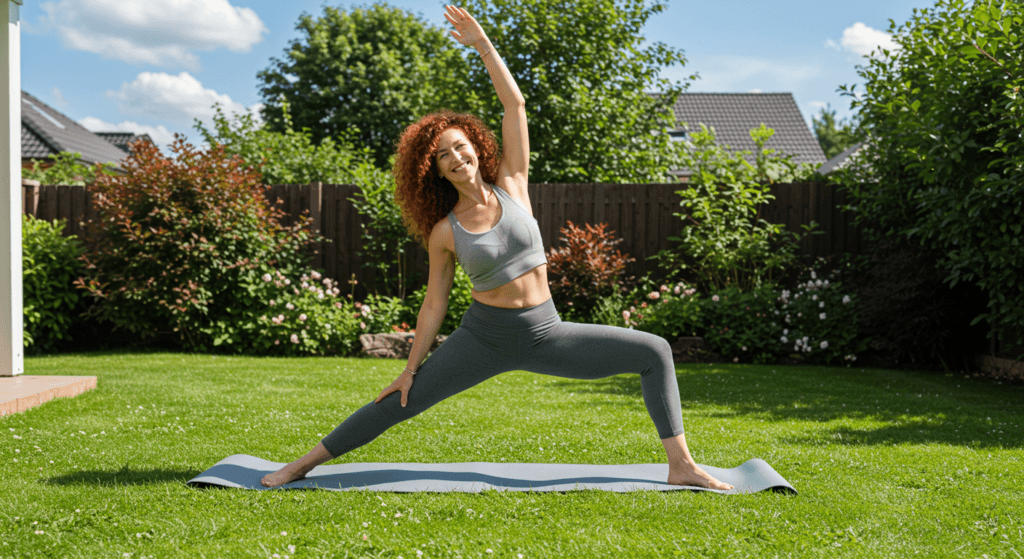
Self-care isn’t just about bubble baths and face masks—it’s about taking intentional steps to care for your mental, emotional, and physical health. But with busy schedules and never-ending to-do lists, it can be tough to build a self-care routine that actually sticks.
So, what’s the deal? How do you create a self-care routine that truly benefits your well-being? In this guide, we’ll break it down step by step, with expert tips, data-backed insights, and practical strategies you can start using today.
Why Self-Care Matters for Your Health
Self-care isn’t a luxury—it’s a necessity. Studies show that prioritizing self-care can lead to better stress management, improved sleep, and even a longer lifespan. According to the American Psychological Association, chronic stress can weaken the immune system, making you more vulnerable to illness.
The Science Behind Self-Care
Research suggests that practicing self-care can:
- Reduce anxiety and depression symptoms
- Lower blood pressure and improve heart health
- Enhance focus and productivity
- Strengthen personal relationships
So, let’s get into the nitty-gritty of how you can make self-care a non-negotiable part of your life.
Identify Your Self-Care Needs
Self-care looks different for everyone. The key is figuring out what you need to feel balanced and healthy.
Ask Yourself:
- What drains my energy the most?
- What activities make me feel recharged?
- How do I typically cope with stress, and is it effective?
- What simple adjustments can I make to put my well-being first?
By reflecting on these questions, you can build a self-care plan tailored to your specific needs.
Create a Daily Self-Care Schedule
Once you’ve identified what you need, it’s time to schedule self-care into your daily routine. Consistency is key!
Sample Self-Care Routine:
| Time of Day | Self-Care Activity |
|---|---|
| Morning | Stretching, deep breathing, journaling |
| Afternoon | Short walk, hydration check-in, mindful eating |
| Evening | Reading, screen-free time, gratitude practice |
Pro Tip: Start small! Even five minutes of self-care can make a difference.
Boundaries to Protect Your Self-Care Time
One of the biggest self-care killers? Lack of boundaries. If you don’t protect your time, someone or something will fill it for you.
Ways to Set Boundaries:
- Learn to say no – You don’t have to say yes to everything.
- Schedule self-care like an appointment – Treat it as a non-negotiable.
- Limit screen time – Social media and emails can drain your energy.
- Communicate your needs – Let others know when you need personal time.
Not Sure Where to Start? Try These Self-Care Ideas
Physical Self-Care
- Regular exercise (even just a 20-minute walk!)
- Healthy eating habits
- Prioritizing sleep (7-9 hours per night)
Emotional Self-Care
- Practicing gratitude
- Journaling to process emotions
- Talking to a friend or therapist
Mental Self-Care
- Reading or learning something new
- Meditation or mindfulness practices
- Unplugging from social media
Social Self-Care
- Spending quality time with loved ones
- Setting boundaries with toxic relationships
- Joining a supportive community
Overcome Common Self-Care Challenges
Many people struggle with self-care because of these common barriers:
Lack of Time
- If your schedule is packed, start with just 5-10 minutes a day to build the habit gradually.
Guilt About Prioritizing Yourself
- When you prioritize self-care, you’re better able to be present and support those around you.
Uncertainty About What Works
- Try different activities and approaches until you discover what resonates best with you.
Low Energy Levels
- Begin with small, low-effort self-care practices like deep breathing or listening to music.
Tip: Start with just one self-care activity today—small changes lead to big results!
FAQ
Key Takeaways
- Self-care is essential for physical, mental and emotional well-being.
- Building a routine starts with identifying your unique needs.
- Consistency is key—schedule self-care into your daily life.
- Boundaries are necessary to protect your self-care time.
- Experiment with different activities to find what works best for you.


